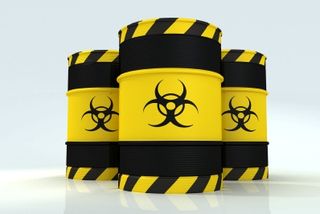Analysis: Data is the ‘toxic pollution’ of the information age
Richard Thomas made some very important points about the concepts of information and data, with BT’s chief security technologist in agreement.

In Information Commissioner Richard Thomas' speech at RSA Europe, he called information a very valuable commodity, but also a toxic' liability.
He talked of how organisations were still unaware of the risks they were taking in a world where cybercrime is an ever increasing threat - especially with PCs and laptops junked' with live data, and staff losing memory sticks, laptops or discs.
Businesses were collecting more and more data thanks to ever-cheaper technology, but not putting in place the right safeguards to make sure it didn't get lost.
Bruce Schneier, chief of security technology at BT - and described as security guru' by the Economist - was also talking at the event and echoed Thomas' thoughts when he described data as pollution' which needed to be taken care of.
He said: "Just as physical pollution was an early problem of the early industrial age, data privacy is going to the problem of the information age."
"All [computers] process it, its stays around, it has to be dealt with, and we're basically ignoring it like we did years ago, just like pollution."
Thomas also described personal information as being the "lifeblood" of government and business, central to work, family and leisure time. The flow of digital data revealed and recorded everything we did and every transaction that we took.
Get the ITPro. daily newsletter
Receive our latest news, industry updates, featured resources and more. Sign up today to receive our FREE report on AI cyber crime & security - newly updated for 2024.
With the advent of social networks it was now even our innermost hopes, worries and fears which were being recorded.
Schneier agreed, saying more and more of our lives went online and that more and more of what we did was being mediated by computers, leaving audit trails.
He described what the future could hold in a life recorder' a small camera you could attach to yourself which detected everything you did and held it in data form.
He said: "It could record everything. If it was audio that's 200GB a year and with video 700GB a year. It's a lot of data, but not that much.
"You could start selling this as a security device. Nobody would dare mug me or attack me because they'll be identified."
Thomas and Schneier both agreed that the pollution' of data was a responsibility for businesses and governments to clean up.
Thomas talked of how data loss could result in "harm, distress and hassle" for the individuals affected, lead to serious financial losses and affect business reputation.
Schneier hoped that laws would catch up the fast pace of technology, and in five or ten years society would get a hold of the data pollution problem.
Schneier said that he thought the information problem would be faster than the physical pollution problem to solve, but was still going to take a few turns of the technology.
"There's going to be a lot of abuses and lots of people will say that's not the world they want to live in. Future generations are going to look at us and judge us in the dawn of the internet age on how we deal with these fundamental problems in an information society
"I think we can either make future generations proud or make them shake their heads. It would be nice to make them proud."




